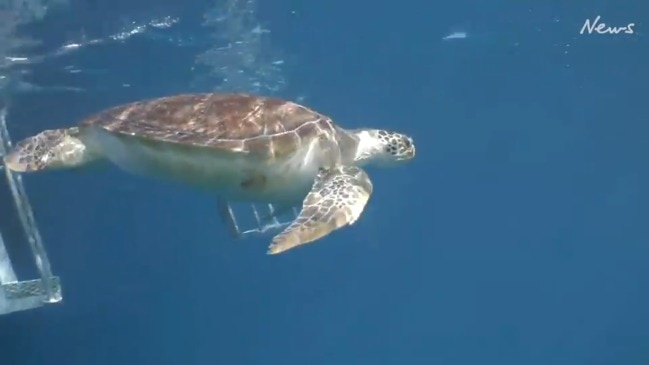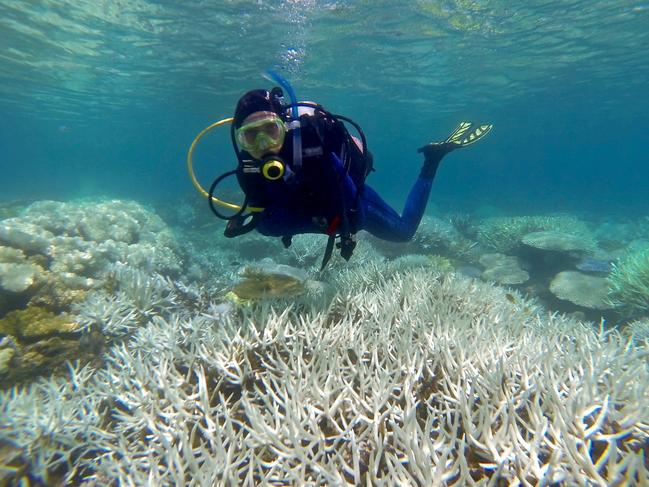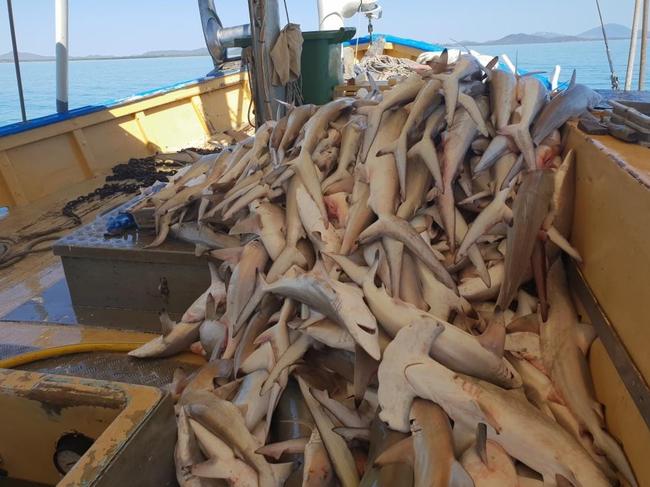CRITICAL DIAGNOSIS: Great Barrier Reef’s health declines
The IUCN says the natural wonder faces irreversible loss unless urgent, large-scale action is taken now

Mackay
Don't miss out on the headlines from Mackay. Followed categories will be added to My News.
THE Great Barrier Reef faces irreversible loss if urgent and large-scale conservation measures are not taken now.
These are the findings from the IUCN’s World Heritage Outlook released this week which diagnosed the national treasure’s outlook as “critical”.
It identified climate change as a major threat along with poor water quality from catchment run-off, coastal developments, fishing and the crown-of-thorns starfish.
“Of most concern are ocean warming and acidification and the increased frequency and intensity of extreme weather events,” the assessment stated.

The IUCN said the 2016 and 2017 coral bleaching events had impacted two-thirds of the reef with another bleaching in 2020 the most severe and widespread on record.
More stories:
The tragic toxins found in our turtles
Program working to protect reef awarded share in $1.8M
$40m tourism package for ailing reef businesses
How La Nina will affect reefs around the Whitsundays
World-first reef project harnesses power of IVF
Rising sea temperatures along with food supplies and other factors had also contributed to seabird species deteriorating.
And the GBR’s status as the world’s largest turtle breeding ground was under threat with populations of loggerhead, hawksbill and green turtles having all declined, as had scalloped hammerhead sharks, since the previous outlook in 2017.

The report also found human activity like fishing and development had led to the deaths of endemic Australian snubfin dolphins and Australian humpback dolphins.
But along with the damning findings, the IUCN assessed the effectiveness of the Reef 2020 Long-Term Sustainability Plan.
It said it was a welcome and “very significant step” forward but progress towards targets had been slow.
There was also a nod to community training, eco-tourism certification and outreach programs like Reef Guardians.
Subscriber benefits:
Your questions about the new Daily Mercury format answered
How to make the most of your Mercury subscription
But the Australian Marine Conservation Society GBR campaign manager Dr Lissa Schindler said the Federal Government’s lack of decisive action on climate change was unforgivable in light of the findings.
“How many more warnings do our political leaders need before they take serious action on climate to protect our international icon, all its incredible wildlife and its beleaguered tourism industry?” Dr Schindler said.
She said the AMCS was calling on the government to be global leaders and commit to a national climate change policy limited to 1.5C of heating.
Share your thoughts on this issue through a letter to the editor:


